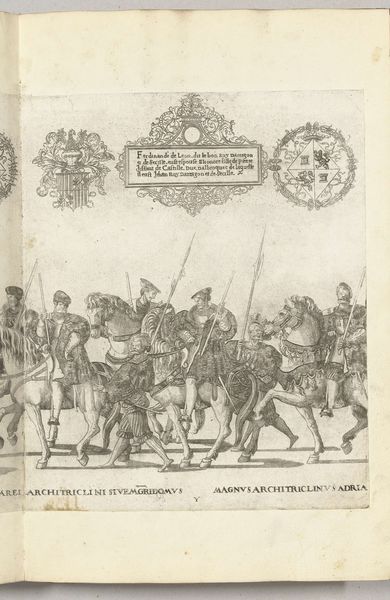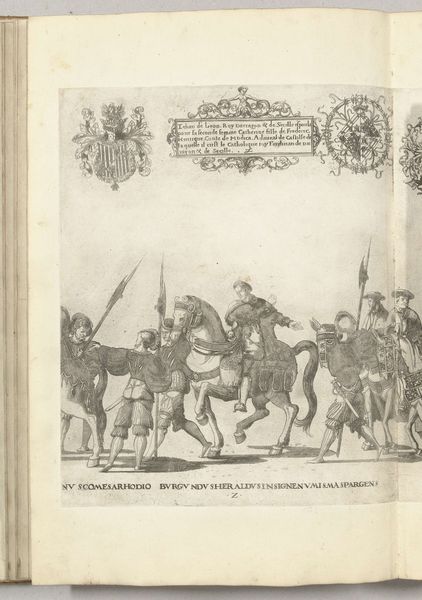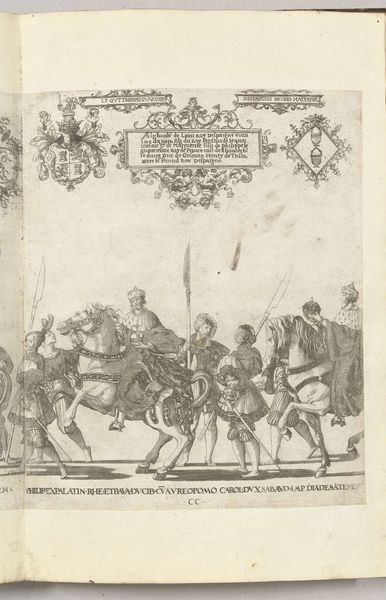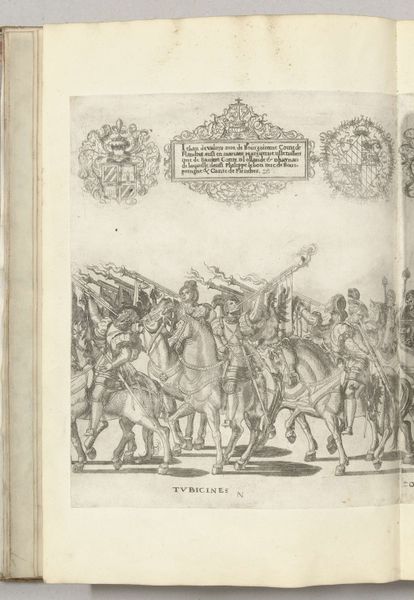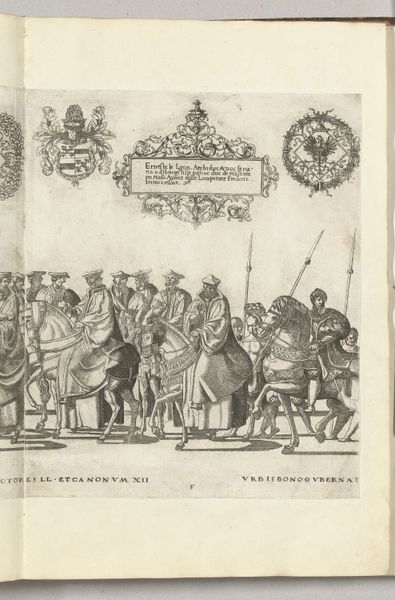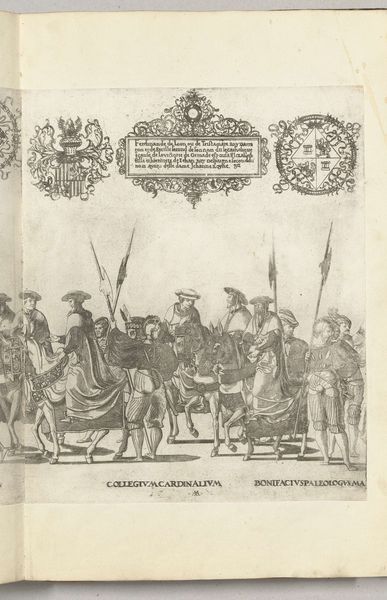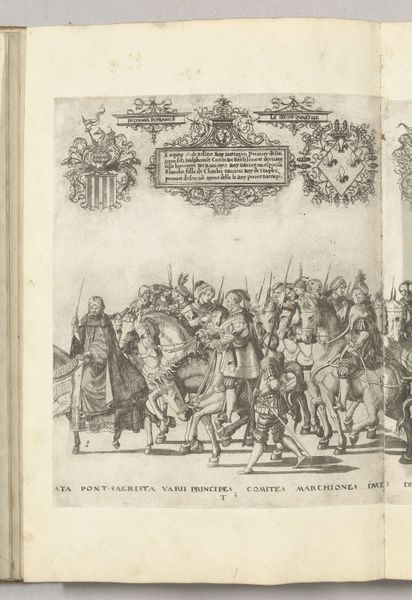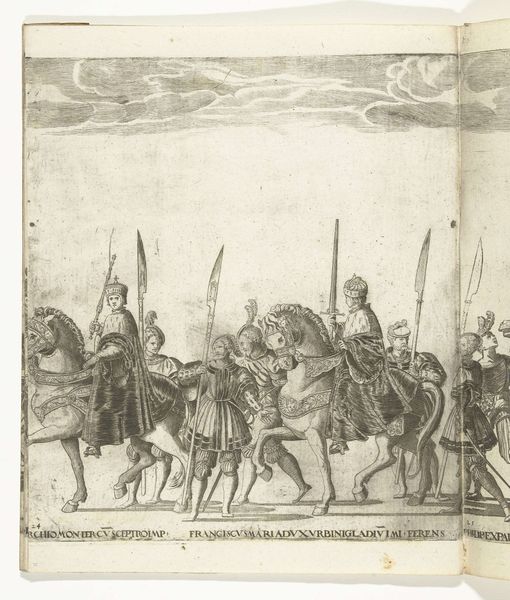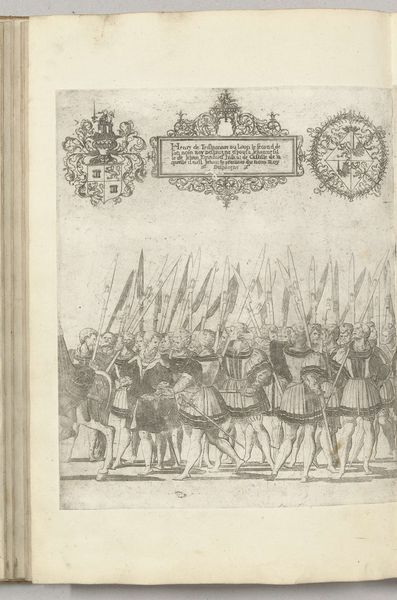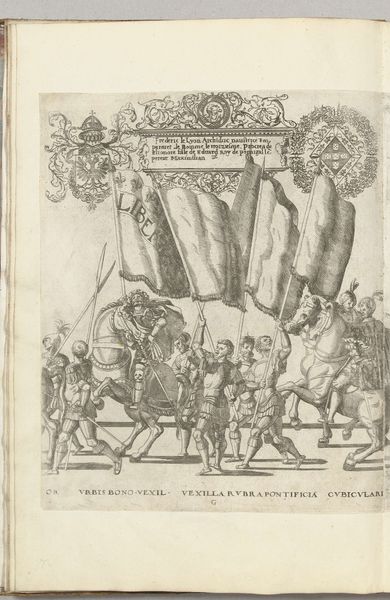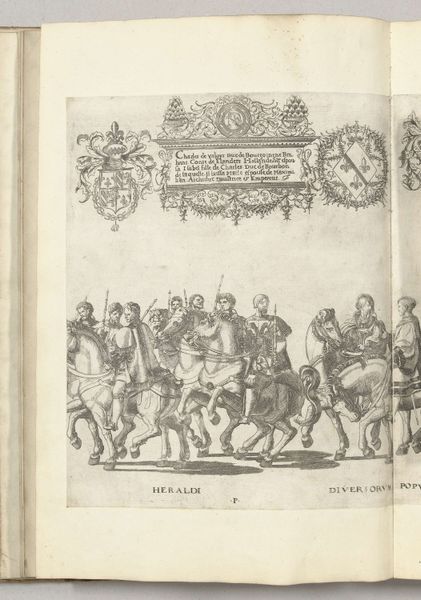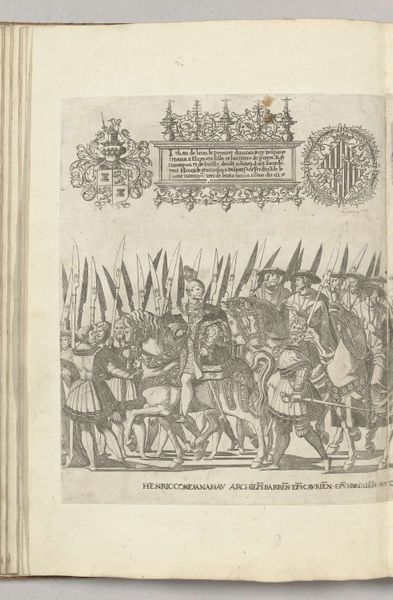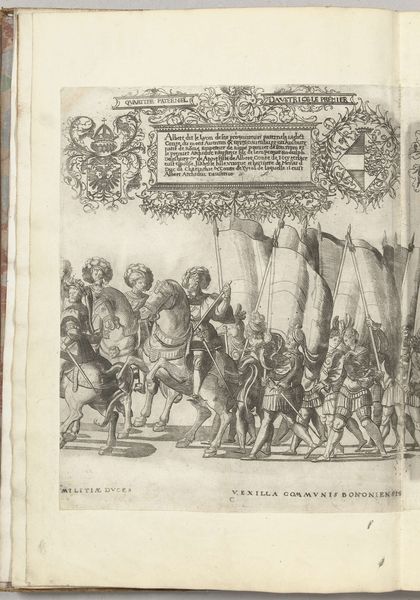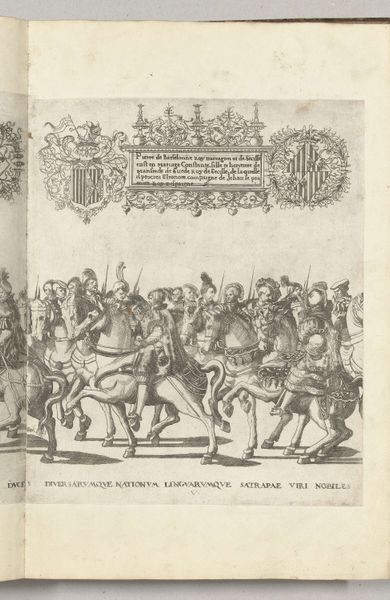
Bonifatius IV Paleologo, markgraaf van Monferrato, met de keizerlijke scepter en Francesco Maria della Rovere, hertog van Urbino, met het keizerlijk zwaard, plaat BB 1530 - 1536
0:00
0:00
print, engraving
#
portrait
#
aged paper
#
light pencil work
#
medieval
# print
#
sketch book
#
hand drawn type
#
figuration
#
11_renaissance
#
personal sketchbook
#
sketchwork
#
pen-ink sketch
#
line
#
pen work
#
sketchbook drawing
#
history-painting
#
northern-renaissance
#
sketchbook art
#
engraving
Dimensions: height 360 mm, width 295 mm
Copyright: Rijks Museum: Open Domain
This print, made by Nicolaas Hogenberg around 1500, depicts Bonifatius IV Paleologo and Francesco Maria della Rovere with imperial regalia. It’s made with the intaglio process, where lines are incised into a metal plate, likely copper, and then filled with ink to transfer the image to paper. The technique itself speaks to a moment of transition, as printmaking was becoming a crucial tool for disseminating information and propaganda across Europe. The crisp lines and fine details, achieved through skillful engraving, allowed for the reproduction of intricate designs, making imagery accessible to a wider audience. Consider the labor involved: the meticulous carving of the plate, the careful inking and pressing – each print a testament to the craftsman’s dedication. This reflects the growing importance of skilled artisans in a world increasingly shaped by new forms of production and exchange. In essence, this print encapsulates the intersection of art, craft, and the evolving social landscape of the Renaissance. It reminds us that even seemingly simple objects can reveal complex histories of labor, technology, and cultural exchange, challenging our notions about the boundaries between art and craft.
Comments
No comments
Be the first to comment and join the conversation on the ultimate creative platform.
